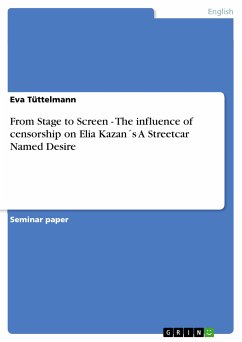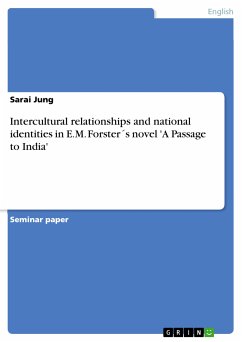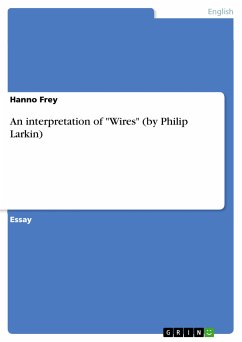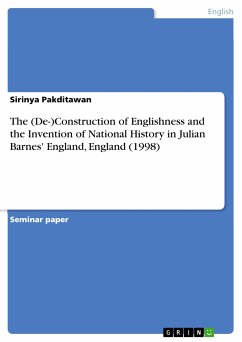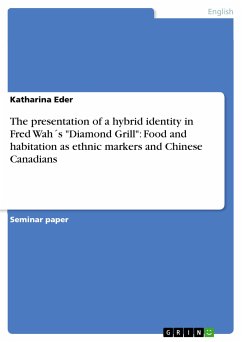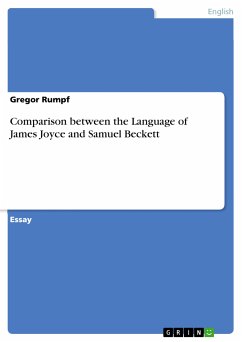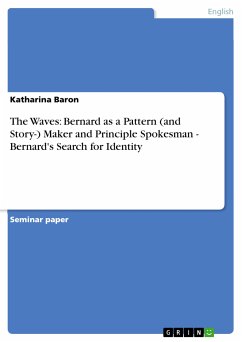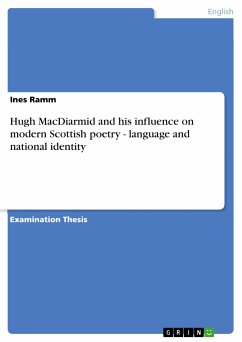
Hugh MacDiarmid and his influence on modern Scottish poetry - language and national identity (eBook, PDF)

PAYBACK Punkte
0 °P sammeln!
Examination Thesis from the year 2006 in the subject English Language and Literature Studies - Literature, grade: 1,0, Carl von Ossietzky University of Oldenburg, language: English, abstract: The Scottish Renaissance Movement has found its way into numberless anthologies of Modern literature and poetry across the world and has been used as initial point for various studies of the awakening Scottish national identity in the early twentieth century. Unfortunately, the Scottish Renaissance has seldom been subject to literary studies resulting in a sensible lack of monographs on the movement.1The ...
Examination Thesis from the year 2006 in the subject English Language and Literature Studies - Literature, grade: 1,0, Carl von Ossietzky University of Oldenburg, language: English, abstract: The Scottish Renaissance Movement has found its way into numberless anthologies of Modern literature and poetry across the world and has been used as initial point for various studies of the awakening Scottish national identity in the early twentieth century. Unfortunately, the Scottish Renaissance has seldom been subject to literary studies resulting in a sensible lack of monographs on the movement.1The name of Hugh MacDiarmid, however, is inevitably to appear in any context of the Renaissance Movement. His articles in periodicals such asThe Scottish Chapbookshaped the cultural conception of the movement, while his poetical output gave voice to the simmering national awareness and search for identity at the beginning of the century. Questions of the national character and the political role of Scotland pervaded Scottish writing of this time. The idea of Scotland as a small nation where political selfdetermination might develop in co-ordination with cultural self-expression characterizes MacDiarmid’s confidence with regard to the Renaissance movement.2Furthermore, the poet aimed to reinstall the Scots language as a literary means in the arena of academic and scientific writing extending its vocabulary corpus through the work with language dictionaries and ancient terminology. Approaching Scots in this manner has rendered him a number of opponents criticizing the artificiality of his poetry. On the whole, MacDiarmid has been an ambiguous figure provoking reactions with all of his actions and attitudes. He was the personified extreme, combining nationalist views with socialist dreams, spiritual sensitivity with objective reason. The paper at hand examines the literary effects of Hugh MacDiarmid’s writing on contemporary Scottish poetry on the positive as well as on the negative side. One of the major questions in this work focuses on the relation between literature and national identity in the Scottish Renaissance and afterwards. In how far are the demands of distinctive Scottishness realised in recent Scottish poetry? And is MacDiarmid’s conception of national identity still applicable to the modern Republic after the re-establishment of its Parliament in 1999? Furthermore, MacDiarmid claimed that Scottish identity could only be fully expressed through the Scots language. Thus, the second major subject within this examination will be the use of the Vernacular subsequent to the Scottish Renaissance and its function as a medium for national identity.




